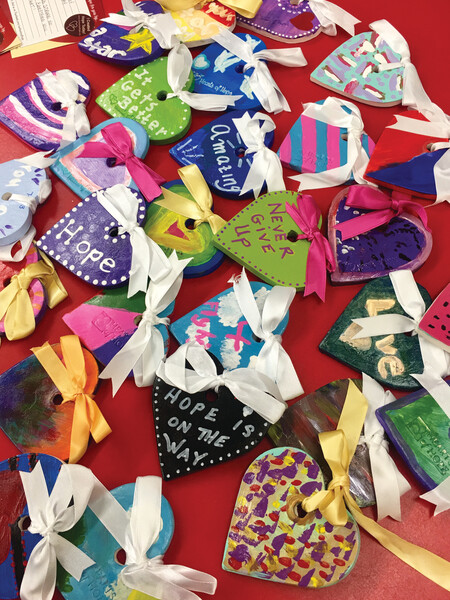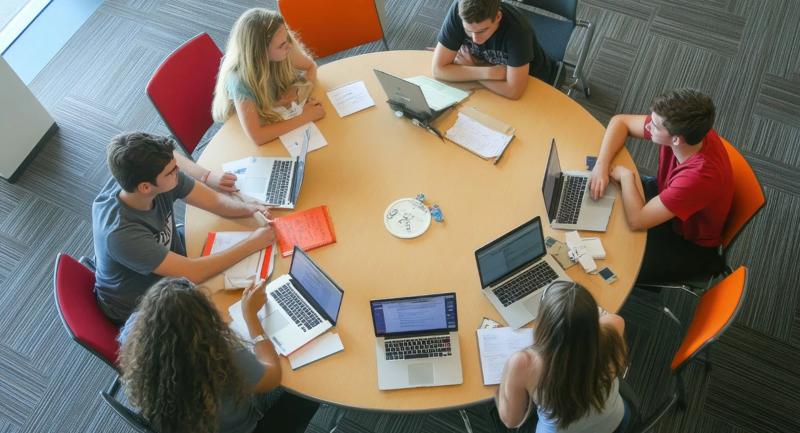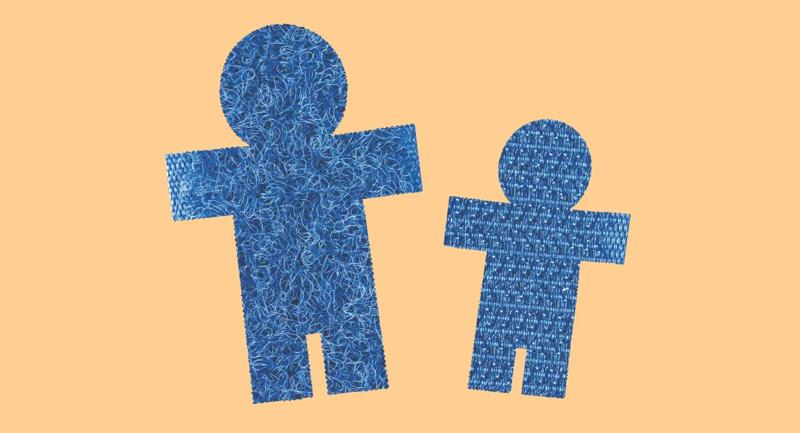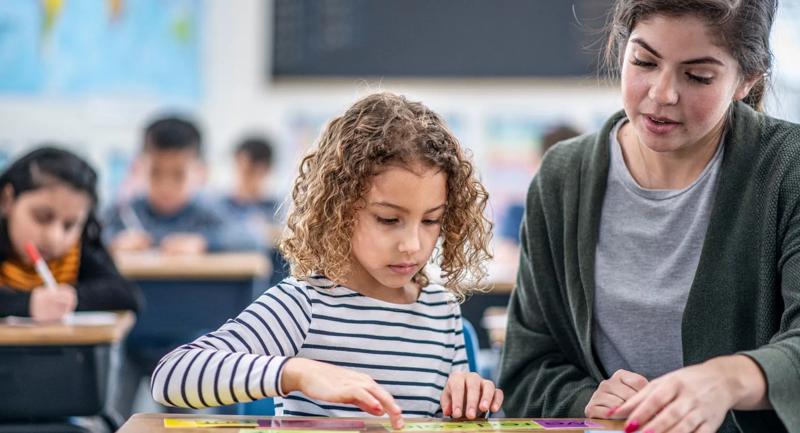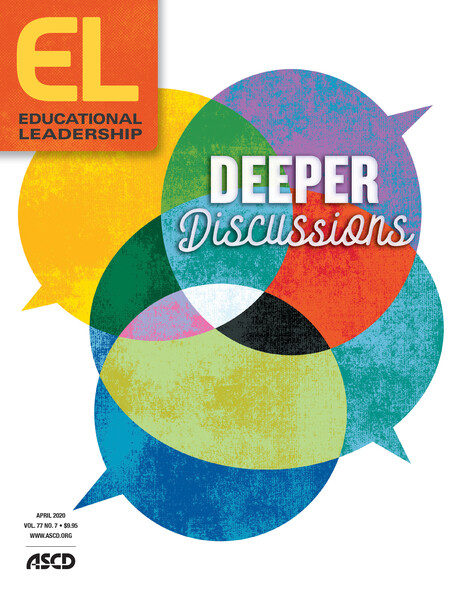Cosby Hunt is an AP U.S. history teacher at Thurgood Marshall Academy, a charter high school in Washington, D.C. He's also the founder of Speak Truth, a monthly after-school seminar at which dozens of high school students from around the District of Columbia—representing a mix of public, charter, and private schools—gather to discuss pressing social issues. Recent sessions have delved into gentrification, toxic parenting, immigration, and Kanye West and black celebrity politics.
The seminars are organized by the Center for Inspired Teaching, a local nonprofit where Hunt is a manager for youth learning, but they are entirely student-run. Pairs of students facilitate the discussions—facilitators are given training a week prior to each event—while others exchange views, debate the background text, and search for common ground. The goals of the program are to foster student autonomy and expression and build discussion skills. Newcomers, Hunt says, are often surprised when adults don't intervene.
Now in its sixth year, Speak Truth has added a professional development component: Through a partnership with the Washington Teachers Union, educators are invited to "shadow" the students' discussions and attend follow-up debriefing sessions. The hope is that the seminar will serve as a model for student-led learning and authentic classroom discourse.
We recently talked to Hunt about the evolution and dynamics of the program.
What are the origins of Speak Truth? How did it start?
About six years ago, I was teaching an after-school class for the Center for Inspired Teaching called Real World History, which I still teach. We were studying the Great Migration, and this was at the time when Ta-Nehisi Coates's essay on reparations ["The Case for Reparations"] came out. So we read that in the class, and there was so much in there about housing discrimination and the Great Migration that I realized we had to give the students a chance to talk more about it. I thought it would be a good idea to bring more students into the discussion. So we invited students from a private school to join us. It was a great talk—even though it probably wasn't the best idea to have a forum like this about a 10,000-word essay—and afterward the students said, "OK, when's the next one?" So we did it again, and they asked the same question. So I thought, "Oh wow, they really like doing this." So we started holding discussions once a month.
How did you widen the participation pool beyond your class?
It was very grassroots, very word-of-mouth at first. I've been teaching for 25 years, so I know a lot of social studies teachers and principals and assistant principals in the area. I would send our email blast to them, and they would tell their students. And the kids started to come, and they would tell other students about it. So the list just got bigger and bigger.
Why is the idea of Speak Truth important to you as an educator? Is it an extension of your teaching philosophy?
As an AP history teacher, I actually can't put the kids in control all the time. There's a lot that has to be teacher-driven. But I do want to see more of this kind of authentic student discourse in schools. And I will say that the reason I became a teacher was that my own high school teachers instilled a lot of confidence in me. I went from being a C student to a B+ student over the course of high school and gained a lot of confidence in the process. So I do think that one of the things we should do as educators is create opportunities for students to gain skill and confidence. Obviously Speak Truth does that. It's a way for students to build their skills as facilitators and discussants and see the value of their own voices and ideas.
What specific skills do students get out of the discussions?
For one thing, they learn to listen. We use that word a lot. And in this respect, an important part of our seminars is bringing together students who don't know each other. So they can't just jump to assumptions about what someone means because they already know what he's about. Instead, they have to pause and create space to really try to understand what this other person means. They also learn deliberation skills and how to deal with disagreements and tension.
And of course, for the facilitators, there is a great deal of skill development. They learn how to guide a conversation without showing their hand. They learn how to create a space where people feel free to express themselves, and where everyone has a chance to be heard. They learn about layering questions and drawing speakers out. These are important, higher-order skills they generally don't get in school.
What's your goal for teachers who come to observe Speak Truth seminars?
The goal is for them to see what it looks like when a discussion is well-facilitated by a student with other students. And we hope that they will bring this back to their own schools and classrooms—these open and authentic conversations among students, where they are leading their own learning and gaining confidence in their voices. We'd like to see this as a core part of education for all students.
What advice would you have for educators or school leaders who want to try to replicate something like Speak Truth in their own school or district?
I think the most important thing to keep in mind is that this is their discussion—the students. It can't be a gotcha thing, where you bring the kids together and now the adults are going to talk at them. You're bringing them together so they can talk. I say to our students all the time, "I'm just the guy who opens the door and serves the pizza. You guys are doing all the thinking." And I think they really appreciate that—I'm not sure they normally get this kind of affirmation and responsibility. You're saying to them that you support them and that you believe they have what it takes to make this discussion work.
—Anthony Rebora
Editor's note: This interview has been edited for space.
